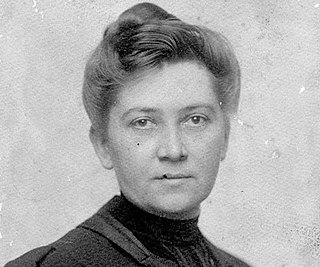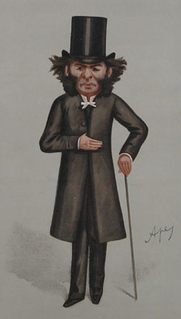A Quote by Corra May Harris
It is easier to give all your goods to feed the poor, or not to have any goods - only your virtues, to boast of - than it is to judge the rich with charity.
Related Quotes
Think not you are charitable if the love of Jesus and His brethren be not purely the motive of your gifts. Alas! you might not give your superfluities, but "bestow all your goods to feed the poor;" you might even "give your body to be burned" for them, and yet be utterly destitute of charity, if self-seeking, self-pleasing or self-ends guide you; and guide you they must, until the love of God be by the Holy Ghost shed abroad in your heart.
Three sorts of goods, Aristotle specified, contribute to happiness: goods of the soul, including moral and intellectual virtues and education; bodily goods, such as strength, good health, beauty, and sound senses; and external goods, such as wealth, friends, good birth, good children, good heredity, good reputation and the like.
You will find out that Charity is a heavy burden to carry, heavier than the kettle of soup and the full basket. But you will keep your gentleness and your smile. It is not enough to give soup and bread. This the rich can do. You are the servant of the poor, always smiling and good-humored. They are your masters, terribly sensitive and exacting master you will see. And the uglier and the dirtier they will be, the more unjust and insulting, the more love you must give them. It is only for your love alone that the poor will forgive you the bread you give to them.
Yes, the South-becoming always poorer-and the North-becoming always richer ...Richer, too in the resources of weapons with which the superpowers and blocs can mutually threaten each other. In the light of Christ's words (Mt. 25), this poor South will judge the rich North. And the poor people and poor nations-poor in different ways, not only lacking food, but also deprived of freedom and other human right-will judge those people who take these goods away from them, amassing to themselves the imperialist monopoly and political supremacy at the expense of others.
It is only all too easy to understand the requirements contained in God's Word ('Give all your goods to the poor.' 'If anyone strikes you on the right cheek, turn the left.' 'If anyone takes your coat, let him have your cloak also. Rejoice always.' 'Count it sheer joy when you meet various temptations' etc.). The most ignorant, poor creature cannot honestly deny being able to understand God's requirements. But it is tough on the flesh to will to understand it and to then act accordingly. It is not a question of interpretation, but action.
True it is, that he who has taken off his affection from the goods of this world has already sold all, and has made himself poor, so far as depends upon himself; but the fruit and the proof of this spiritual poverty are, patiently to endure the loss of worldly goods, and without any regret, when it pleases our heavenly Father that we should be despoiled of them.
Do not worry! Earthly goods deceive the human heart into believing that they give it security and freedom from worry. But in truth, they are what cause anxiety. The heart which clings to goods receives with them the choking burden of worry. Worry collects treasures, and treasures produce more worries. We desire to secure our lives with earthly goods; we want our worrying to make us worry-free, but the truth is the opposite. The chains which bind us to earthly goods, the clutches which hold the goods tight, are themselves worries.
Even as in the blessed in heaven there will be most perfect charity, so in the damned there will be the most perfect hate. Wherefore as the saints will rejoice in all goods, so will the damned grieve for all goods. Consequently the sight of the happiness of the saints will give them very great pain.






































